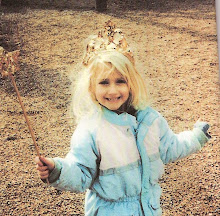Codes have been around as long as man has been able to communicate. From Indian smoke signals to Mayan hieroglyphics to the WW2 Navajo military language and the act of breaking codes has been the focus for many explorers, enemy camps, detectives and archaeologists. What strikes me is the fact that codes are usually secret messages. For instance, Julius Caesar’s cipher, the Da Vinci Code and today’s cryptographers who write encryptions and complex algorithms are all camouflaged communications. So, if codes are secret, are “codes of conduct” really secret codes for how one should act but the truth is maybe they are just smoke screens for borderline to over the top unethical behavior?
In the case study, Tailgate Approved? The Rise and Fall of the Fan Can, Anheuser-Busch (AB) who is experiencing a decline in the sale of Bud Light, develops a marketing campaign distributing beer cans with the college colors in areas where the Universities are in order to tap into the end of season baseball and coming football tailgate crowds. The interesting ethical twists are most college age students are not of age and the “code of alcohol advertising” suggests that one not advertise in areas where less than 70% of the audience is underage. The other being the use of school colors insinuated that AB was working in collaboration with the Universities, when in fact it was not at all. Although AB’s public relations folks denied the obvious relationship between sales, school colors and the target audiences; they did agree to pull the cans when asked to do so by said Universities; the questions remains did AB violates the various codes of conducts expected of them by their industry?
There are many codes that could apply to this case. There is the code of conduct of Anheuser-Busch whose very first line says, ”to ensure prosperity and job security for our employees, we must remain profitable” (http://media.corporate-ir.net/media_files/nys/bud/corpgov/bud_codeofethics.pdf) Wow, at what cost I wonder? Public Relations professionals have an industry code of conduct which I read on the Public Relations Society of America website (http://www.prsa.org/AboutPRSA/Ethics). Public trust is the key to the code. Tell me would you trust someone who tells you that “the promotion was neither college-specific nor team-specific” when the can is orange and black and sitting on the shelves of every liquor store within 10 miles of Princeton? I Kant believe that there is no orchestrated relationship between the two. Whether these codes are helpful or not would only be a valid question if there are consequences to not meeting the codes. The public relations professional code says "emphasis on enforcement of the code has been eliminated”. Secret code for, it really does not matter what you do as long as you can get away with it?
Kant would look at the advertising campaign and most likely say, although the intention was not to sell beer to the underage students at Princeton, the act certainly supports that college students were the intended consumers knowing that 70% of college students are not of age. Aristotle may be cool with it – beer does transcend to happiness. I think he would be concerned with the lack of citizenship in the decision to roll out the campaign; fueling underage college students is not good for a community.
Cynicism aside, codes have a great way of keeping one on track, a moral check list if you will. Referring back to the American Marketing Association’s (AMA) Code of Conduct, it is clear that marketers have many different stakeholders and shareholders to consider. The case study is a great example of this and what was helpful to me was seeing the extent of who can be impacted by a simple marketing idea. The AMA codes says, “as a marketer we recognize that we not only serve our organizations but also act as stewards of society in creating, facilitating and executing the transactions that are part of the greater economy.” http://www.marketingpower.com/ It seems to me that AB had an obligation to the college underage drinkers not to target them so blatantly. But read the code again, is “greater economy” secret code for increased sales, rising stocks, and money at any cost?
Bespoke salvia
10 years ago

I cant remember who i was talking to about secret messages but thank you for bringing that up. I find it interesting how everything seems to be written down and made easy for us to follow but existence of secrets it what really keeps our society going. Like last weeks post, i feel it is necessary to keep things secret.
ReplyDelete